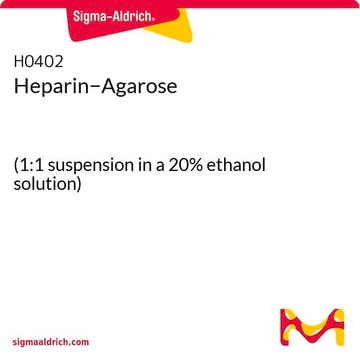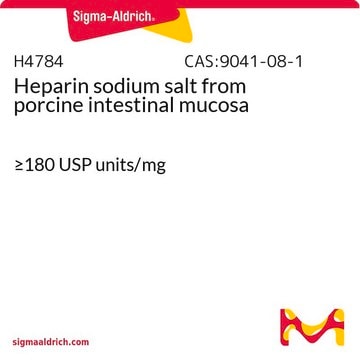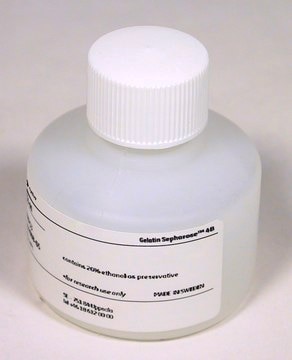H6508
Heparin−Agarose
Type I, saline suspension
Synonym(s):
Heparin beads, Heparin resin
About This Item
Recommended Products
biological source
heparin from Porcine intestinal mucosa
type
Type I
form
saline suspension
extent of labeling
400-1500 μg per mL packed gel (activity approx. 140 USP units per mg)
technique(s)
affinity chromatography: suitable
matrix
cross-linked 4% beaded agarose
matrix activation
cyanogen bromide
matrix attachment
amino
matrix spacer
1 atom
suitability
suitable for chromatography
storage temp.
2-8°C
Looking for similar products? Visit Product Comparison Guide
Application
Physical form
Storage Class Code
10 - Combustible liquids
WGK
WGK 3
Flash Point(F)
Not applicable
Flash Point(C)
Not applicable
Personal Protective Equipment
Certificates of Analysis (COA)
Search for Certificates of Analysis (COA) by entering the products Lot/Batch Number. Lot and Batch Numbers can be found on a product’s label following the words ‘Lot’ or ‘Batch’.
Already Own This Product?
Find documentation for the products that you have recently purchased in the Document Library.
Customers Also Viewed
Our team of scientists has experience in all areas of research including Life Science, Material Science, Chemical Synthesis, Chromatography, Analytical and many others.
Contact Technical Service










